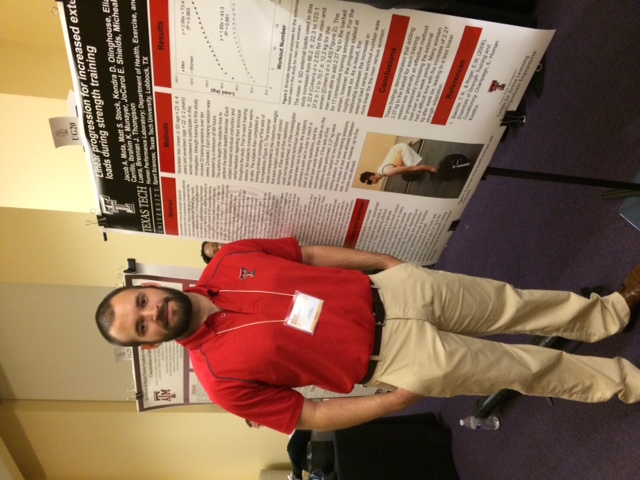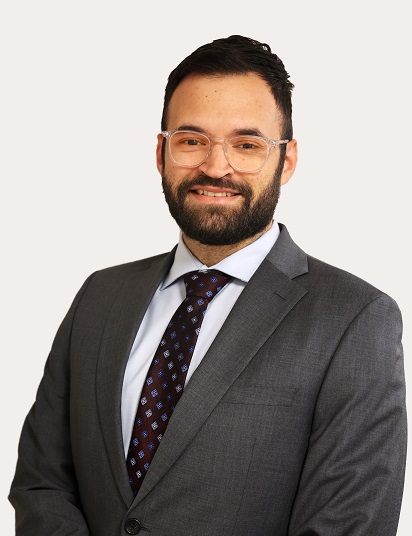The transformative experiences of TTU undergraduates are a story that we (TrUE) are dedicated to creating at Texas Tech University. What began 15 years ago as an undergraduate research project became a passion and career for TTU faculty mentor Jacob Mota. His story is one we are excited to tell as well as be a part of.
“I kind of got into all this by complete accident,” Mota said. His journey started TrUE, then known as CALUE, as an undergraduate student working under Dr. Matt Stock. Around 2012, Mota spotted a research study posted by Dr. Stock on Facebook. Intrigued, Mota decided to reach out.
The message read: “Hey, looking for people to do this resistance training study. Come into my lab, we do deadlifts and I just want to see what happens,” Mota recalled. He [Stock] said, “Jake that’s great. I’m not looking for you,” Mota recalled, laughing. In Mota’s email, he mentioned having weightlifting experience. Stock was looking for people with no experience. After a few email exchanges, Stock invited Mota to his office to discuss the research study.
The study focused on looking at the effects of muscle fatigue and how using different muscle groups may or may not impact muscle fatigue. During Mota’s time with the research, he was able to get work published, travel and present at conferences. One conference Mota presented at was the Undergraduate Research Conference (URC) hosted by CALUE. The URC has remained the flagship event hosted by TrUE through all its iterations. Being involved in undergraduate research changed Mota’s career trajectory.

Mota presenting his undergraduate research in 2015
“As an undergrad, I had no idea what research was,” Mota said. At the time Mota, a member of Goin’ Band, only really knew about music, and was considering pursuing rehab and physical therapy. In an effort to continue doing research, Mota decided to go to graduate school.
Mota received both his bachelors and master’s at Texas Tech University. “I really liked two things coming out of my master’s program – I really liked working with this technique called ultrasounds,” Mota said. Ultrasounds are a non-invasive imaging device, that can be put on a muscle to photograph. The second thing Mota liked was working with research that involved firefighting.
After receiving his Masters, Mota’s next step in his educational journey was his PhD. Through his mentorship with Stocks, Mota met Eric Ryan. Stocks and Ryan had both completed their PhDs from the University of Oklahoma and Ryan was able to take Mota on as a PhD student at the University of North Carolina. In 2020, Mota defended his dissertation from his dining room table, he said. “I graduated right before COVID hit. I was very fortunate that I got a job offer from the University of Alabama as an assistant professor.”
For two years, Mota taught at the University of Alabama and then received news from a colleague about a position opening in the Department of Kinesiology at Texas Tech. Mota immediately new he had to take it and signed his contract to come “home.”

Since Mota’s time as a student, CALUE became TrUE. Not knowing that the program had changed, Mota applied for funding through TrUE Transformers, a program that funds non-STEM research. After being rejected by the program, Sarah Tapia decided to forward his email to, Director, Levi Johnson in hopes of connecting him to other funding avenues offered through the department. During a video call with Johnson, Mota soon learned about the changes within TrUE’s department. “It never dawned on me to think ‘I wonder if the two are connected...’”
“I think the conversation went something like, ‘man you know, really sounds like something from back when I was a student called CALUE,’” Mota said. He recalled Johnson saying, “well it’s funny because we used to be CALUE.”
From being an undergraduate researcher to a TTU faculty mentor now, Mota knows the importance of transformative experiences here at TTU and is living proof of the positive effects that a faculty mentor/undergraduate relationship can have! 15 years later, Mota is in the same building that started his research journey.
